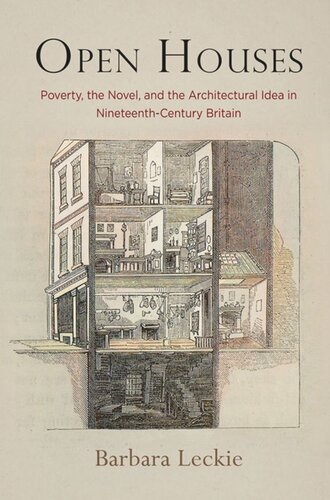

Most ebook files are in PDF format, so you can easily read them using various software such as Foxit Reader or directly on the Google Chrome browser.
Some ebook files are released by publishers in other formats such as .awz, .mobi, .epub, .fb2, etc. You may need to install specific software to read these formats on mobile/PC, such as Calibre.
Please read the tutorial at this link: https://ebookbell.com/faq
We offer FREE conversion to the popular formats you request; however, this may take some time. Therefore, right after payment, please email us, and we will try to provide the service as quickly as possible.
For some exceptional file formats or broken links (if any), please refrain from opening any disputes. Instead, email us first, and we will try to assist within a maximum of 6 hours.
EbookBell Team

0.0
0 reviewsBarbara Leckie's Open Houses addresses nineteenth-century documentary and print culture dedicated to convincing the reader of the wretchedness of housing of the poor and its urgent need for reform. It illustrates the ways in which "looking into" these houses animated new models for social critique in tandem with new forms for the novel.
Barbara Leckie's Open Houses addresses nineteenth-century documentary and print culture dedicated to convincing the reader of the wretchedness of housing of the poor and its urgent need for reform. It illustrates the ways in which "looking into" these houses animated new models for social critique in tandem with new forms for the novel.